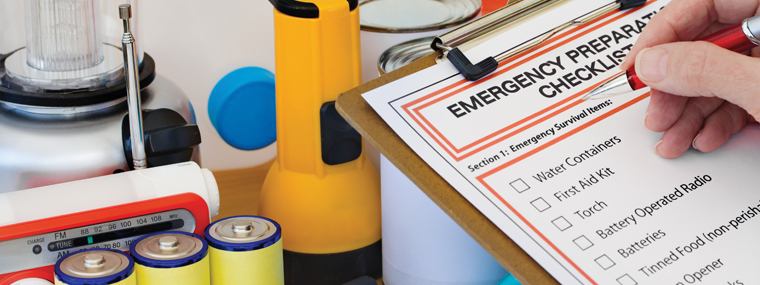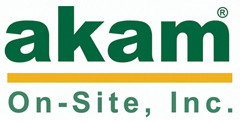
Preparing for Hurricanes and Beyond
Published July 2019

 When A Hurricane Warning Is Issued
When A Hurricane Warning Is Issued
By Regan Marock
It is imperative that all properties have a comprehensive protocol for preparing the structure for a mandatory evacuation in case of a hurricane. Exact plans need to be put in place in regard to the mechanical systems and when they will be taken offline. After the storm, it is just as critical that all this equipment is checked and cleaned of debris before reactivation. Thought must go into pre-planning before the storm, precautions to be taken during the hurricane, and then steps to take once everyone returns to the property. Constant communication between residents and the on-site staff is just as critical as prior preparation. A few points to take into consideration throughout this process are as follows:
- Make sure to have a preferred client agreement with a water restoration company in place to provide for priority status. There is no cost for this.
- Make sure to have all unit keys on hand to provide for access once the water restoration company arrives.
- Have enough manpower between your maintenance staff and/or security personnel to access units so that the water restoration company can move at a fast pace from unit to unit.
Founded 35 years ago, AKAM On-site Inc. delivers exceptional residential property management in South Florida to association clients in the areas of finance, administration, budget engineering, hospitality, preventative maintenance, staff supervision, and emergency response.
For more information, visit www.akam.com.
 Consider These Emergencies and Events
Consider These Emergencies and Events
By Betsy Barbieux, CAM, CFCAM, CMCA
Hurricanes are usually considered first when preparing for disasters and emergencies. However, a survey of dozens of managers reveals they also consider many other emergencies and events.
- Storms
-
- Hurricanes
- Tornadoes
- Thunder/lightning
- Windstorms
- Surge
- Hail
- Fire
- Chemical accidents or spills
- Hazardous materials accidents
- Floods
- Criminal actions
- Crimes against property
- Crimes against persons
- Domestic violence
- Vandalism
- Meth labs
- Drought
- Wildfire
- Animals, Pests, Vermin
- Bats
- Bees
- Rats and Mice
- Pigeons
- Ducks
- Coyotes, Bobcats, Bears
- Feral pigs
- Reptiles, snakes, alligators, iguanas
- Ants, mosquitoes, termites
- Terrorism
- Space weather/sunspots
- Lock failure
- HVAC failure
- Gate failure
- Nuclear accidents
- Bombs and bomb threats
- Electrical power outages
- Water pipe breaks
- Elevator failures
- Gas line or pipe leaks
- Cold weather
- Heat wave
- Sewer system failures or backups
- Sinkholes
- Erosion/sand
- Mold
- Infectious diseases
- Contaminated water
- Illegal aliens
- Structural collapse
- Red tide and fish kills
- Bridge collapse
- Asbestos
- Seawall failure
- Tree roots
- Medical emergencies
- Death in unit or on the property
- Suicide
- Earthquakes
For more information on Florida CAM Schools, visit www.FloridaCAMSchools.com, email Betsy@FloridaCAMSchools.com, or call (352) 326-8365.
 Getting through Hurricanes with Communication and Preparation
Getting through Hurricanes with Communication and Preparation
By Monique Johnson
Communication and preparation are key to getting through hurricanes with the least damage possible. Make sure that everyone on-site knows his or her individual role at each stage of a tropical event. It’s important to share the plan at board meetings and then with the resident community. It’s also important to work with your local emergency management teams. They will know if your community is in a mandatory evacuation zone, your risk for flooding, and other specific local information.
- Have a system for communicating before the storm arrives. Share critical information with your community, including pre-storm plans, storm procedures, disaster relief information, shelter locations and hours, evacuation routes, emergency response numbers, information on shutdowns of major building systems, and, for those owners with special needs, the Vulnerable Population Registry.
- Keep communication flowing as the storm hits. As long as possible, continue to communicate with residents, even if individuals can’t get the messages when they’re sent. A mass communication system allows that to be done quickly and easily.
- After the storm, update residents at least daily on the progress of cleanup and repair work as well as any important updates within the community.
- Don’t forget your vendors. Your trusted vendors need to know what you expect of them before, during, and after an emergency.
For more information on FirstService Residential, visit www.fsresidential.com.
 What You Can Learn Through A Storm
What You Can Learn Through A Storm
By Robyn Rocco
In September of 2017, Lehigh Acres was one of the hardest hit areas in Florida, with direct impact from Hurricane Irma. Many in the area were fortunate enough to not suffer catastrophic loss, but out of the 16 associations in that area that Landex Resorts manages, damage repairs were in the tens of millions of dollars (out of a total of $750 million in Lee County). The last repairs were completed in May 2019. Property owners, management, and contractors endured a long 21 months of rebuilding and recovery in the time since Irma made landfall.
Reflecting on this time has been a huge learning lesson for our team and respective colleagues in the field. As Joel Osteen phrased it, “There are some things you only learn through a storm.” Such can be said in life, as well as taken literally from this experience. As storm season approaches, we recommend having all your important information combined at one location, such as a binder or portable waterproof safe. Reach out to your insurance agent to update a quick reference sheet with policy numbers, important contact information, etc., and put it all in one safe place.
Do the same for your preferred vendors, board or committee members lists, maintenance employees, and management staff.
For more information on Landex Resorts International, call (239) 369-5848 or visit www.landexresorts.com.



